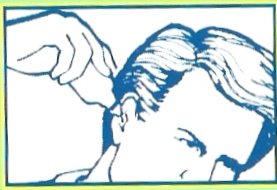A brief confession: I enjoy watching figure skating. Really. Seriously.
Okay, so on the list of bombshell admissions, it probably ranks in between an affinity for baths and an addiction to Cap'n Crunch. But as a certified Guy Sports Fan who relishes a Saturday afternoon on the couch with the television showing a college football game between two teams with no relation to my life (say, Nevada and Fresno State) except that they're on my TV, the figure skating admission comes with a degree of sheepishness.
The truth of the matter is that -- just as I'm duly impressed by the fact that hockey players can ply their complex trade on ice -- it's pretty impressive to watch athletes launch themselves, backward, into the air, spin three or four times, and then land, upright, on skates. Without their legs actually detatching themselves from their bodies.
And if a typical figure skating broadcast consisted of a brief pre-game show, an hour or two of people skating around, jumping, and getting scores, I think there would be plenty of guys who would be comfortable with such a confession. Hey, there's no guy stigma about watching televised poker, despite the fact that it amounts to an hour of watching guys glare at each through their sunglasses.
But the typical figure skating broadcast has taken on such a significant degree of soap opera-like characteristics that it often doesn't feel like watching sports at all. For every five minutes of skating, viewers are subjected to an equal amount broadcast time featuring interviews with furry-parka-clad skating coaches and fuzzy, dream sequence-style video detailing skaters' triumphs over adversity. The current drama in the sport is the sudden influx of recently naturalized US citizens into national competition. Not an issue that turned up in last year's NCAA Final Four.
The problem is that we can't really identify with the lives of most skaters. At least when you hear about the life of a college football player, you can imagine him playing high school football, going on to college, going to practice each day, etc., etc. He probably doesn't study the way most college students do, but at least he appears to exist in some context besides football.
Of course, there are exceptions. Last night's broadcast of the US Figure Skating Championships on ESPN2 actually felt something like a sports broadcast - featuring a scoring analyst on a set that looked like the bridge of a space ship, and big name color commentators Katarina Witt and Kurt Browning.
We also learned that at least one of the competitors, Jane Bugaeva, is actually a full-time student at the University of North Carolina, and instantly we could identify with her experience. Bugaeva fell on her first couple of jumps (which we could identify with as well), but then she looked genuinely excited to hit her final jump, which - if we were actually talented enough to intentionally leave our feet while skating - seemed like a tangible and recognizable emotion.
Bugaeva finished in 13th place, which unfortunately leads me to believe the full-time-student-as-competitive-skater model will remain the exception, rather than the rule. Which is a shame, because it'd be nice - just once during the Olympics - to see a sepia-toned feature in which a skater talks about how Albert Einstein, or Mark Twain, or even Tom and Ray Magliozzi influenced her skating.
But I'll settle for a skating competition that ends in a shootout.
Friday, January 13, 2006
Subscribe to:
Post Comments (Atom)




No comments:
Post a Comment